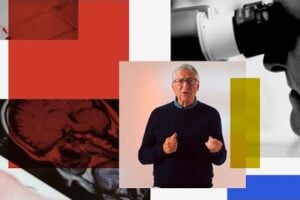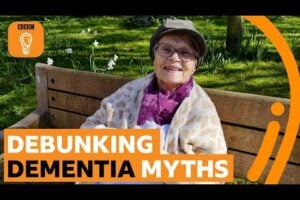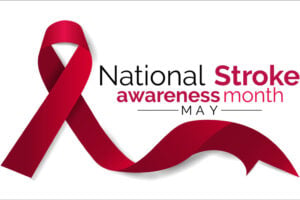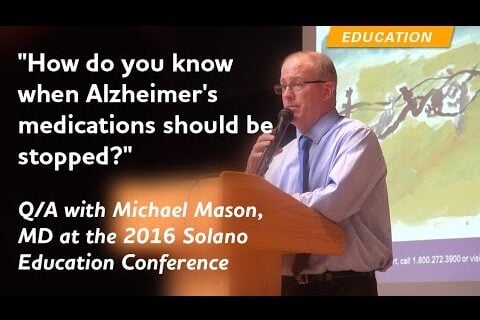In those who live to a very advanced age (beyond the age of 85) HS-AGING (hippocampal sclerosis in the elderly) is almost as prevalent as Alzheimer’s. Remarkably, HS-Aging appears to be a completely separate disease from Alzheimer’s, although it is almost always diagnosed as Alzheimer’s disease while people are alive.
Three important papers authored by Dr. Peter Nelson and others at the University of Kentucky Sanders-Brown Center on Aging, explore the neuropathology behind this little-understood brain disease.
Dementia Books & Videos on Amazon:
FREE Newsletter:
HS-AGING, much like Alzheimer’s disease, causes symptoms of dementia, such as cognitive decline and impaired memory. Although Alzheimer’s disease is probably the most recognized cause of dementia, HS-AGING also causes serious cognitive impairment in many older adults.
Overview of 3 New Studies on HS-AGING:
- The first paper, published in the Journal of Alzheimer’s Disease, draws from a very large sample population and shows that presently, around 20% of all dementia cases are diagnosed as HS-AGING at autopsy, although almost none are given that diagnosis during life. That means that the presence of this disease is currently almost unknown by the health care providers who are seeing patients.
- A second study, “Arteriolosclerosis that affects multiple brain regions,” appears in a recent issue of the journal Brain, and looks at small blood vessels in patients with HS-Aging and describes a specific change, called “arteriolosclerosis,” which is present in patients with HS-Aging. This small blood vessel change may provide a new therapeutic target to alter the progression of the disease.
- Finally, the third paper, “Hippocampal sclerosis of aging, a prevalent and high morbidity brain disease,” appears in Acta Neuropathologica and offers an overview of HS-AGING for patients and researchers. This paper reviews the relevant scientific literature and also presses home the point that HS-AGING is a very common disease that exerts a strongly adverse impact on public health.
It is important for physicians and scientists to understand the unique pathology of HS-AGING, and to be able to differentiate it from other diseases, as it is only by making an accurate diagnosis that clinicians can hope to treat people who present with signs of cognitive decline. These current studies represent a leap forward in the knowledge base about HS-AGING, and represent potential new paths to explore for diagnosis and treatment of this serious, but under-appreciated brain disease.
In people over 95, a type of dementia called HS-Aging is about as common as Alzheimer’s. Yet few people have heard of it. Why? What makes it different?
What is HS-Aging?
HS-Aging stands for “Hippocampal Sclerosis in Aging People”.
Alzheimer’s and HS-Aging are types of dementia. In people over 95, their prevalence is about equal.
HS-Aging is Not Well Known. Everyone Has Heard of Alzheimer’s. Why?
There are hundreds of types of dementia. In people aged 65 to 95, 60% of dementia cases are Alzheimer’s. That is why Alzheimer’s is so well-known.
At age 95, the balance shifts and HS-Aging becomes about as common as Alzheimer’s.
Few people have heard of HS-Aging. The main reason is because it is often mis-diagnosed as Alzheimer’s. Why?
When dementia is seen in the elderly, the default diagnosis is Alzheimer’s. This is caused by many factors, among them:
- Patients often do not want to go through extensive testing for a variety of reasons.
- There is no simple test. The differences between dementias can be subtle. Therefore, distinguishing between dementias is often technically challenging.
- Cost comes into play. For example, F18 dementia scans can run thousands of dollars. Therefore, many a diagnosis is made based on incomplete information.
With these realities, it is common for a diagnosis to default to the most common dementia, which is Alzheimer’s.
As a result, people with dementias such as HS-Aging often live out their lives thinking they have Alzheimer’s.
How does HS-Aging differ from Alzheimer’s?
Alzheimer’s and HS-Aging both damage the hippocampus. It seems that HS-Aging hits harder than Alzheimer’s, causing greater disturbances to memory.
HS-Aging describes a brain under attack from a protein called TDP-43. It causes sclerosis, or the hardening of tissues. In the case of HS-Aging, TDP-43 proteins harden brain tissue in the hippocampus (sometimes called the memory-processing center), causing the loss of a large number of crucial brain cells. It is called Hippocampal Sclerosis because the brain’s hippocampus is the focus of the attack.
Alzheimer’s, on the other hand, is an attack on the brain by plaques (made from beta-amyloid) and tangles (made of tau proteins). Researchers speculate that the plaques clump together and “choke” brain cells, while the tangles strangle them from within.
How does HS-Aging differ from regular HS?
Regular Hippocampal Sclerosis (HS) occurs in younger people where brain tissue hardening is associated with epilepsy. HS-Aging is a similar hardening, but it occurs in the elderly with different consequences. It is caused by a long life of physical wear-and-tear on the brain, similar to vascular dementia. As a matter of fact, once people hit 95, the combined occurrences of HS-Aging PLUS vascular dementia actually outstrip Alzheimer’s.
Why does the type of dementia matter?
As explained above, the biochemistry of each dementia differs significantly. This implies different medications are required to fight the chemicals causing the dementia. A person’s response to medicines and supplements will be entirely different, depending on the disease.
Importantly, new F18 imaging techniques have recently been introduced that let doctors see if a person with dementia has the plaques associated with Alzheimer’s. Using this technique helps doctors tell the difference between Alzheimer’s and HS-Aging. This is particularly crucial in the world of clinical trials, where participants must closely match the experimental drugs they are testing.
CTE Research Leading to Rapid Improvements in HS-Aging Treatments
When we talk about dementia in aging athletes, it is usually the type of dementia called CTE (Chronic Traumatic Encephalopathy). Recent studies showed athletes in contact sports like football players are 19 times as likely to develop dementia. As a result, there has been a huge burst of research on CTE treatment.
CTE treatment has a lot in common with HS-Aging treatment. With the new attention both of these dementias are now receiving, there is good reason to hope for effective new treatments in the immediate future.












The symptoms of all forms of Dementia's and Alzheimer's disease are similar and overlap. Truth be told…we understand precious little about these devastating diseases and the brain. And the drugs available to treat them today are all but worthless,too. Sadly, it will take another 50 years of research to find any major breakthroughs for these horrid maladies of the human mind.
This seems more likely to be the case with my mother. I have always felt that it was more than vascular dementia with mum. She started to lose her complete memory about two years ago, she has no recall of her childhood or young life. I would like to know the probable prognosis of this disease. Apart from arthritic hips and knees mum is very well just no memory, not even 10 seconds ago.
I agree with foodmaven. this article left me with more questions than information. It just ended without addressing questions it had posed. Dissappointing…
.
The problem is that F18 dementia scans are NOT RELIABLE, and can be huge wastes of money, once betamyloid and oligomers are NOT the cause of AD, once as research with F18 dementia scans showed, 55% of patients with betamyloid accumulation in their brains do NOT have AD, once as showed in dozens of AD and others dementias reseafch, betamyloid accumulation it is directly related to Normal Brain Aging.
You left out what I consider a very important piece of this puzzle that I am sure readers would like to know……What are the differences in behavior and other symptoms that would distinguish these two types of dementia from one another? Thank you for addressing!
My mother had Lewy Body dementia, which also is mostly diagnosed as ALZ….it doesn't get the research that it deserves either…most people haven't even heard of it…am glad they are starting to realize different dementias need to be treated differently!!